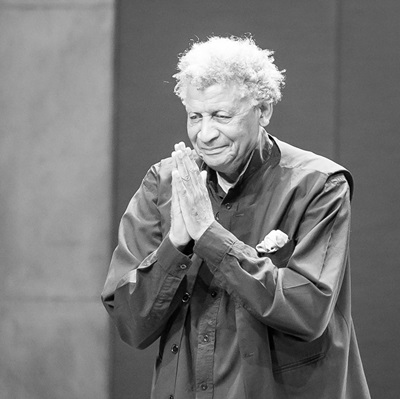In honor of Veterans Day
Eight poets — John Stupp, Aurora Lewis, Michael L. Newell, Robert Nisbet, Alan Yount, Roger Singer, dan smith and Joan Donovan — write about the era of World War II
__________
Great Deeds
by John Stupp
In 1940
men were steel
not like now
they were poured
they were shaped
they were treated
you know the kind
they were thrown in the water
and made to swim
choking in the Ohio River
the Allegheny and the Mon
who back then
were coiled like snakes in the dirt
near furnaces
and mills
keeping warm with their fists up
like Fritzie Zivic
who won the world welterweight title
at Madison Square Garden
he elbowed
he choked
he punched
he cut Henry Armstrong’s eyes and mouth
he said
I’m not Earl Hines
I’m boxing not playing the piano
all of Pittsburgh was turned on
and many sons were born just in time
for World War II as it happened
and the rivers coiled themselves like new fathers in the dark
and the wind was soft on the water
not like now
and men performed great deeds
_____
Carolina Shout
by John Stupp
A song
by James P. Johnson
can say something
about a blue-fingered ocean
off the Carolinas
and not care
I know
having visited said ocean
after my Grandmother died
in the mid-50’s
and watching
my young father
motherless that day
swim out until he couldn’t be seen
past any map
he said later
he was returning to Europe
to the Saar Region
with the 63rd Division
only this time
there was no last view of Coney Island
no recruiting sergeant
no troopship
no infantry company
nothing
just the sun-capped Atlantic
breaking
with both hands
like the great James P.
on the life he meant to have
not this
_____

John Stupp’s third poetry collection Pawleys Island was published in 2017 by Finishing Line Press. His manuscript Summer Job won the 2017 Cathy Smith Bowers Poetry Prize and will be published in 2018 by Main Street Rag. He lives near Pittsburgh, Pennsylvania. From 1975-1985 he worked professionally as a mediocre jazz guitarist.












































I very much liked this heartfelt poem by Joan Donovan , So very touching and relatable..
I enjoyed both of John Stupp’s poems. They reminded me of when I was child and how different things were back then.
I especially love the ending line of this poem!
Enjoyed Robert Nisbet’s poem which captured the era and The Andrew Sisters.
I’m glad you enjoyed it, Aurora
Loved Alan Yount’s poem. My mother was a young teen during WWII,she loved Billie Holiday and so do
Robert Nisbet’s poem “Servicemen” is up to his usual high standards. The final line is especially powerful.
I’m glad you enjoyed it, Michael.
“I Got Lena To Sing To Me,” by Aurora Lewis, is a first-rate poem which captures the angst of military service during wartime, along with the pleasure and relief provided by great music.
Thank you so much Michael. Not being in the service and also not during wartime, I am so thankful that I was able to get my feeling across to my reader.
John Stupp’s “Carolina Shout” is powerful and moving.
Alan Yount’s poem “Smoking an Old Meerschaum Pipe” uses a careful attention to detail to tie together very disparate elements that come to fruition in the final stanza in a pleasing way for the reader.
Roger Singer’s “Barracks 231” — oh yeah. Very nice.
Both of Dan Smith’s poems are gentle in tone and attentive to detail. They capture fundamental truths about family relationships, and war’s effect on them.
Dear Mr. Newell:
Thanks for your kind words. I am honored to have my poems included with so many excellent poems.
“Sweet Pain” by Joan Donovan captures the power of loss, loss too personal to share.
For Aurora Davis. I think your poem on Lena really captured what you could say was the “singing tone,” on war. I have always enjoyed your poems with JJM. Thanks for your comment on my poem.
Alan, thank you for enjoying my poems. I also enjoy yours.
For Michael L. Newell. I liked your poem. It caught the “spirit” of the crooners. Being a trumpet player I have all of Harry James albums. He and Frank make some great music together. Frank did his eulogy in Las Vegas. By he way, I got your two latest books. Several of the poems have stayed on my mind. Also I can’t quit thinking I wish I had come up with the title: “Traveling Without Compass or Map.” What a great overall metaphor and title!
Mr. Yount, I thank you for your kind words about my poem. I also thank you for your support of my books. Greatly appreciated. — MLN
Wonderful poems by all. I especially enjoyed Dan Smith’s poems here. Artful…and with a deep, tangible sincerity that can only come from having lived and having felt with the heart of a poet.
hey, thanks man. DCPH forever!!!